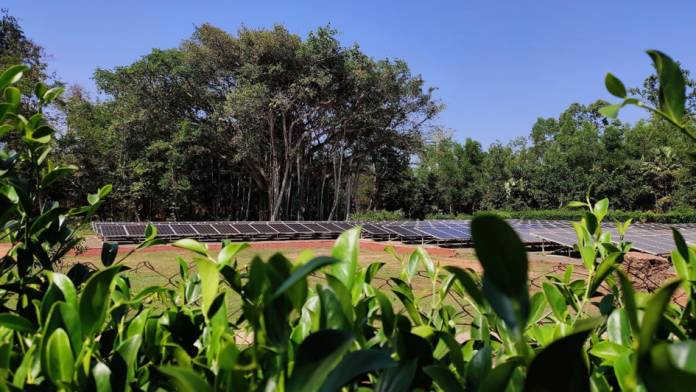Ice is melting, the ocean is rising and swallowing villages, eating away shores, sweeping farms and crops, people are migrating to escape hunger and thirst. When it comes to tackling climate change, however, it is not about polar bears. It is about education and training, which are often the most effective means of achieving long-term sustainability. Economic and technological remedies, as well as laws and monetary incentives, are insufficient. A fundamental shift in how we think and act is needed. We recognize that this is a challenging task as it requires changes to curricula and learning objectives, attitudes and political systems.
Environmental education and training are not only needed to build a new generation of educated consumers, engaged citizens, better policy- and decision-makers. They represent powerful tools to boost youth’s chances to get a job or becoming self-employed too. According to Eurostat latest data, Employment in the Environmental Goods and Services Sector (EGSS), also known as the “eco-industry,” was estimated to account for 4.3 million full-time jobs in 2018 with Germany (626,624 jobs), France (562,769 jobs), and Italy (427,531 jobs) being the three leading countries in the EU-27 by absolute numbers.[1]
So, what is the first profession that comes to mind when you hear “green career”? Environmental engineer is arguably one of the first answers to pop up in your head.
The truth is that we do not all need to be environmental engineers as there are plenty of other opportunities for youth pursuing green careers out there. Among others, destinations program officers find ways to reduce the impact of tourism in holiday spots; urban growers practice urban farming in heavily populated cities and towns; recycling operatives collect recycling materials so that they can be sorted and managed. Additionally, while environmental awareness skills are a must-have in eco-industry positions, they represent nice-to-haves in almost any occupation as the ability to manage resources sustainably will be increasingly requested in the future.[2]
Evidence from past research has shown that, in general, there is disagreement about the scope and content of environmental education and training and several misconceptions promote the lack of a consistent identity. Many organizations do not have the resources todevelop a comprehensive, usable curriculum with specific environmental objectives. Finally, educators and trainers may possess little knowledge on the topicor even lack the right attitude or commitment to provide adequate instruction. In a recent study conducted by UNESCO, one-third of 1,600 educators surveyed reported that their training did not include environmental literacy.[3]
Against this background and the context of our projects, our efforts should aim at reallocating available resources towards environmental education and making of it a regular component of our training programs, as well as providing adequate preparation for trainers. We cannot ignore climate change as professionals who respect evidence-based practice and want to create opportunities for young people. As take carers of the environment, it is our responsibility to support youths in shaping the future they want.
[1]https://skillspanorama.cedefop.europa.eu/sites/default/files/EUSP_AH_Environmental_0.pdf
[2]https://unesdoc.unesco.org/ark:/48223/pf0000377362
[3]https://ec.europa.eu/eurostat/databrowser/view/env_ac_egss1/default/bar?lang=en (online data code: ENV_AC_EGSS1)
Giulia Parola, Munich Business School
Hari Vandana Konda, European Center for Social Finance, Munich Business School


